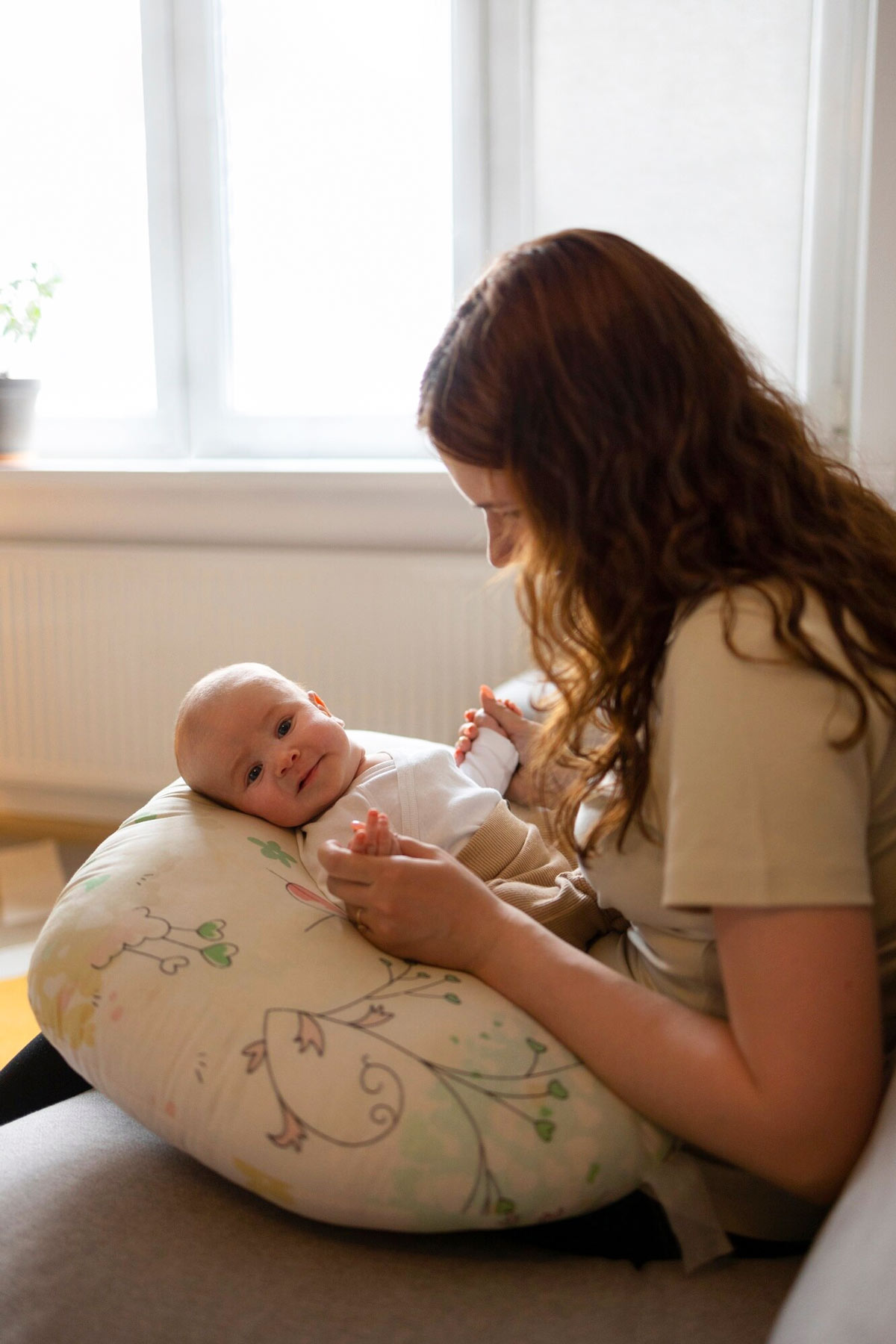
Bonding with a newborn is a natural and important part of early parenthood. For some mothers, the emotional connection may feel immediate, while for others, it takes time to grow through daily care and interaction. This early bond plays a key role in the baby’s emotional and brain development and supports the mother's sense of connection and confidence. Building this bond does not require special effort or routines; it often forms through simple, everyday actions that are repeated with warmth and attention in the early weeks after birth.
One of the most effective ways to support bonding is through skin-to-skin contact. Placing the baby on the bare chest helps regulate the newborn’s body temperature, heart rate, and breathing. It also helps calm both the mother and the baby by releasing oxytocin, a hormone that reduces stress and encourages emotional closeness. While skin-to-skin contact is encouraged immediately after birth, it can continue even after postpartum. This regular closeness helps the mother feel more relaxed and present, while offering comfort and security to the baby.

Another useful tip involves maintaining eye contact and speaking to the baby during routine care, such as feeding or changing. Even though newborns do not understand words, they respond to familiar voices and facial expressions. A calm, steady voice and eye contact help the baby feel noticed and reassured. These simple gestures support emotional development and lay the foundation for communication and trust. Feeding, whether through breastfeeding or formula, is another opportunity to build a connection. Holding the baby close, focusing attention during feeds, and creating a calm environment enhances the sense of security. Breastfeeding also naturally supports bonding by releasing oxytocin and prolactin, hormones linked to emotional well-being.
Carrying the baby during the day, either in arms or using a soft wrap or sling, is another effective way to maintain closeness. This kind of physical contact helps soothe the baby and reduce crying. It also supports sensory development through exposure to motion, warmth, and the sound of the mother’s heartbeat.
Don't Miss: Mother and Baby Skin-to-Skin Contact: Benefits for New Mothers
Timely responses to a baby’s cries, yawns, or signs of restlessness help build trust and emotional security. These small, repeated actions teach the baby that they are cared for and safe. Gentle physical touch, such as stroking or a short massage after a bath, can also help calm the baby and support better sleep. A study found that daily infant massage helped mothers feel more connected and confident, while also improving the baby’s sleep and digestion

Bonding is not defined by one moment but by many small, repeated interactions. When these are marked by warmth, attention, and care, they create a strong emotional foundation that supports both mother and child in the early months of life. These small daily actions help the baby feel safe and understood. Over time, they also support healthy growth and emotional development.
Don't Miss: How Mothers Can Find Inner Strength Through Yoga, Meditation, And Bhakti
This article is authored by Dr Dhanalakshmi R, Consultant -Pediatrician and Neonatologist Motherhood Hospitals, HRBR Layout , Bengaluru
Keep reading Herzindagi for more such stories.
Credits: Freepik
Also watch this video
Herzindagi video
Our aim is to provide accurate, safe and expert verified information through our articles and social media handles. The remedies, advice and tips mentioned here are for general information only. Please consult your expert before trying any kind of health, beauty, life hacks or astrology related tips. For any feedback or complaint, contact us at [email protected].